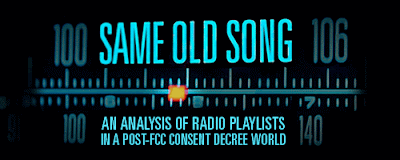Next week (July 8th, 2009), FMC Communications Director Casey Rae-Hunter will participate in a “HealthCare Remix” Discussion on Reform at the Service Employees International Union in Washington DC.
For our part of the conversation, we'll be talking about the issue of health insurance and musicians. Specifically, we'll describe the Health Insurance Navigation Tool (HINT) — a free service that provides musicians with high-quality one-on-one info about their health insurance options, from a fellow musician/health insurance expert. (HINT doesn't sell insurance or even make recommendations — it's an information resource for musicians to get a handle on what their options are).
The official media advisory is below:
“HealthCare Remix” Discussion on Reform
SEIU, Lupus Foundation for America Greater Washington, & Future of Music Coalition to hold open discussion on how individuals in the arts & beyond can benefit from reform
[Washington, DC] – In 2005, J Dilla was an influential hip-hop producer and rising artist whose promising life was cut short by complications stemming from his battle with Lupus. Without health insurance, the costs associated with his care reached triple digits. In the United States, 60% of uninsured Americans are self-employed or employed by a small business that does not offer health benefits. Please join us for a discussion on how healthcare reform can prevent the kind of financial stress and hardship the Yancey family has endured due to the high cost of medical treatment.
WHO: Mr. Malik “Phife Dawg” Taylor, member of A Tribe Called Quest & Diabetes patient; Ms. Maureen “Ma Dukes” Yancey, J Dilla’s mother; Dr. L Toni Lewis, President of Committee of Interns & Residents/SEIU; Reverend Lennox Yearwood, Hip Hop Caucus; Casey-Rae Hunter, Future of Music Coalition
WHAT: Roundtable discussion about healthcare reform and its implications for individuals in the arts and beyond.
Where: SEIU International Headquarters
1800 Massachusetts Ave, Washington, DC
When: Wednesday, July 8th 1 – 2 PM
To RSVP: Please RSVP to healthcareremix@gmail.com.
The event is planned in conjunction with the 4th Annual J Dilla Tribute & Fundraiser presented by SEIU, LFAGW & Hedrush Entertainment, hosted by Phife (ATCQ) & Grap Luva @ Liv Nightclub on Wednesday at 9 PM. Special guests include: J Dilla's mom, Ma Dukes Yancey, and his younger brother, Illa Jay. For questions or more information about the Tribute Event please call Elizabeth Muniot at 202.212.6760.
###
With 2 million members in Canada, the United States and Puerto Rico, SEIU is the fastest-growing union in the Americas. Focused on uniting workers in healthcare, public services and property services, SEIU members are winning better wages, healthcare and more secure jobs for our communities, while uniting their strength with their counterparts around the world to help ensure that workers--not just corporations and CEOs--benefit from today's global economy.
Founded in 1974, the Lupus Foundation of America Greater Washington (LFAGW) Chapter, Inc. provides free, current information, education programs and outreach services to improve the quality of lives for people with lupus while also supporting research. Toll-free number in D.C., Md., Va. and W.Va.: 1-888-349-1167 or 202-349-1167. Web site: www.lupusgw.org.
The Hip Hop Caucus, founded on September 11, 2004, has developed a 700,000 member national database, and created field teams in 48 cities across 30 states. The mission of the Hip Hop Caucus is to work towards ending urban poverty for the next generation. We organize young people in urban communities to be active in elections, policymaking, and service projects. Through Hip Hop culture, celebrities, cultural media, technology, and grassroots organizing, we reach young people of color from low-income communities, who are traditionally unengaged in the political process.
About Future of Music Coalition
Future of Music Coalition is a national non-profit education, research and advocacy organization that seeks a bright future for creators and listeners. FMC works towards this goal through continuous interaction with its primary constituency — musicians — and in collaboration with other creator/public interest groups.





